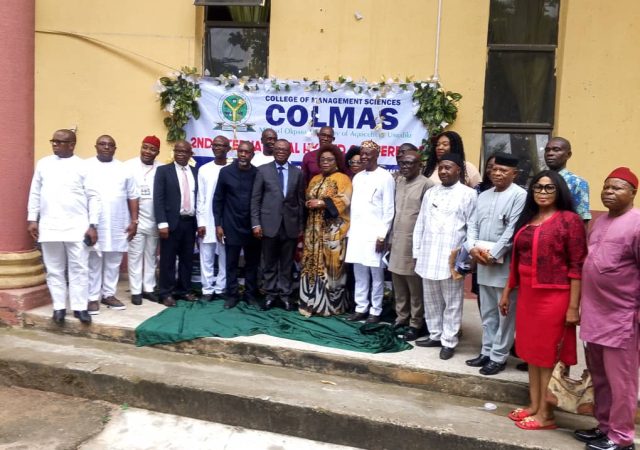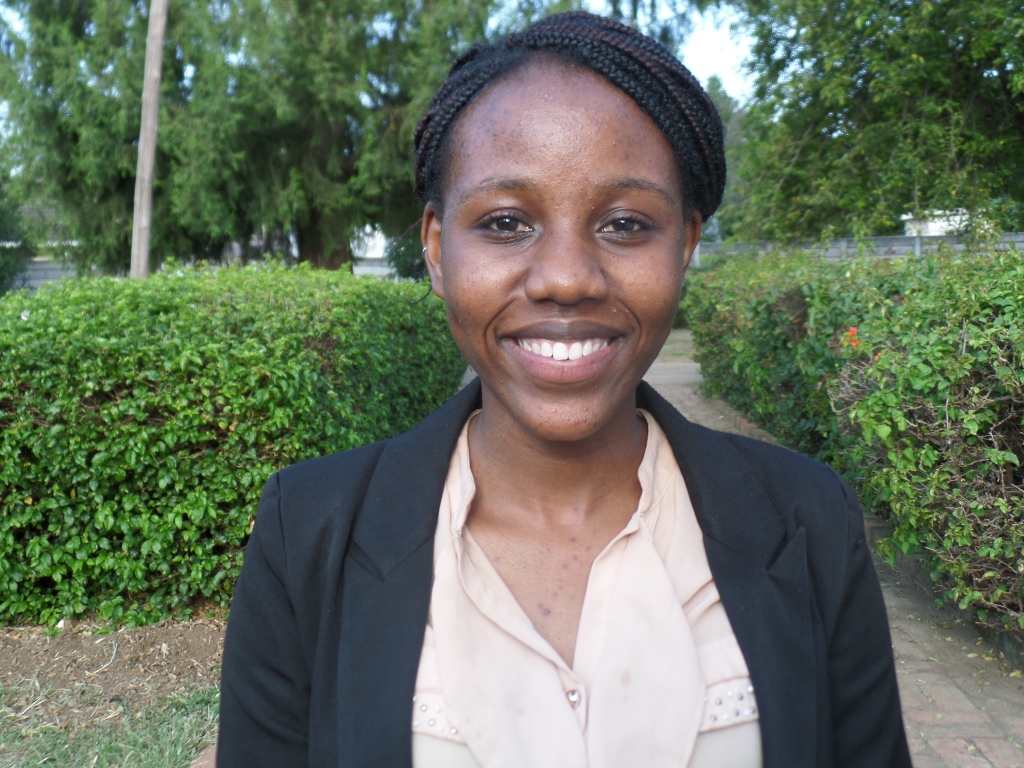
Nduna Girls is a programme that is housed under Nduna Zimbabwe Trust. It is co-run by Nhlanhla Sibanda and Chenai Tsorayi under the guidance and mentorship of Farai Mpofu, the country Director of Nduna Zimbabwe Trust. Nduna Girls seeks to provide home-grown solutions that are holistic and have lasting impact on people’s lives. Nhlanhla’s motivation stems from her belief that education is a right for all. She is passionate about the development of rural communities, and believes that access to quality education is a catalyst for development. Nhlanhla is currently part of the 2019 cohort of the African Women Entrepreneurs Cooperative and a finalist at the Innovation Fair at the Oxford Africa Conference in 2016
In this interview with Green Savannah Diplomatic Cable Nhlanhla takes us to the world of Nduna Girls, Zimbabwe
Excerpts:
What is the story behind Nduna Girls?
Nduna Girls aim at exposing young African minds to relevant information, with a bias to women and girls, so that they are able to make informed decisions about both their career choices and their personal lives in order for them to be able to be fully active in both economic and social spheres. The aim is for them to be able to position or prepare themselves to take advantage of the current and emerging opportunities within the continent and beyond. Nduna Girls seeks to equip girls and young women at their various stages of development and tackles issues which continue marginalize girls and young women. It has steadily worked to remove barriers to entry into education and training, thereby allowing more girls from rural communities to be equipped with the information, knowledge and skills necessary to become independent and active citizens of today’s global community. It takes a holistic approach in providing its intervention. The programme takes into account three critical stages of development of young people with a bias to women and girls professional development. The first tier provides access to education both traditional and access to soft skills that are crosscutting in one’s life such as emotional intelligence, resilience, goal setting. The second tier provides access to professional skills whereby young people are able to get practical skills and explore their ideas in a safe space. The third tier provides access to practical skills which include digital skills, sustainable menstrual management. Lastly, the programme provides leadership opportunities for young people, particularly young women under the guidance of women executives.
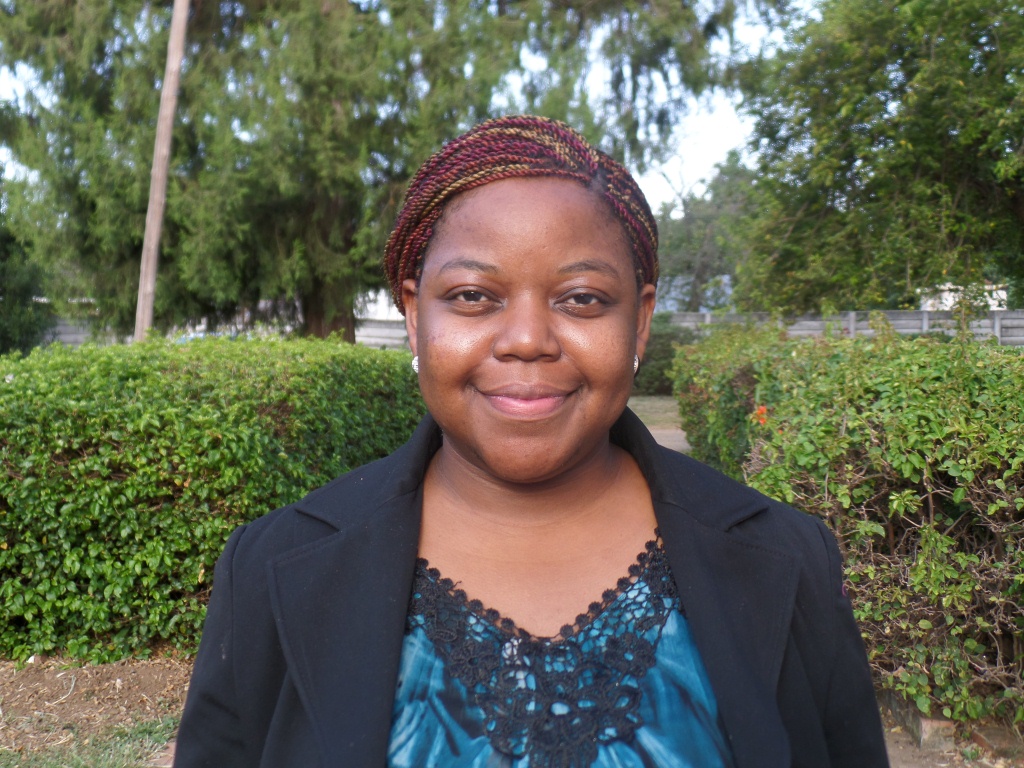
What is the plight of young girls in Zimbabwe?
There are various issues that affect young women and girls in Zimbabwe. However, the three issues that Nduna Girls aims to tackle are one, access to education. The greatest barrier to access to education is poverty. Zimbabwe continues to face serious economic challenges with negative implications on the education system. The origins of Zimbabwe’s crisis are complex and multifaceted. National issues include the AIDS epidemic, declining economic and monetary performance, political polarization, policy constraints, harsh environmental conditions, such as drought, limited donor support for development programmes and depleted capacity and brain drain in the industrial and crucial social-services sectors. Sadly, against this macro-level backdrop, returns to educational investments are perceived as small and uncertain when compared to urgent competing demands for limited income. Parents also have to pay a high cost for education, including ‘hidden costs’ that include transport, uniform, books, lunchbox meals and examination fees. More so, social norms in some communities still dictate that girls are married off early to secure income for their families, and so parents prefer not to invest in their education. The overall effect has been reduced enrolment and increased drop-out rates, re-emergence of gender disparity and deterioration in the quality of teaching and learning outcomes. Another plight has to do with access to menstrual hygiene management materials. Absence of menstruation management materials has negative implications for women. It contributes to them not having the ability to fully participates in activities that are meant to build their skills in order to become economically active.. Women and girls do not have access to menstrual management material that is safe to use due financial constraints. This is amplified by Zimbabwe’s economic hardships. Rural women and girls are the most affected. Only 40% of rural outlets in Zimbabwe sell menstruation management material. Access to internet connectivity and computers is another challenge we are dealing with. Young people from disadvantaged backgrounds have limited or no access to computers or the internet. This lack of access to the digital world puts young people at disadvantaged position. Being unconnected in a digital world deprives them of new opportunities to learn, communicate and develop their skills.. According to The State of the World’s Children 2017: nearly 9 out of 10 of the young people are currently not using the internet live in Africa .Disparities in access are particularly striking in low-income countries. Fewer than 5 per cent of children under the age of 15 use the internet in Bangladesh and Zimbabwe. In the immediate term, children who are unconnected are missing out on rich educational resources, access to global information and online opportunities for learning. As children reach adulthood and enter the world of work, internet connectivity will increasingly mean the difference between their ability to earn a living or not. Those with access to digital technologies and the skills to make the best use of them will have the advantage over those who are unconnected and unskilled.
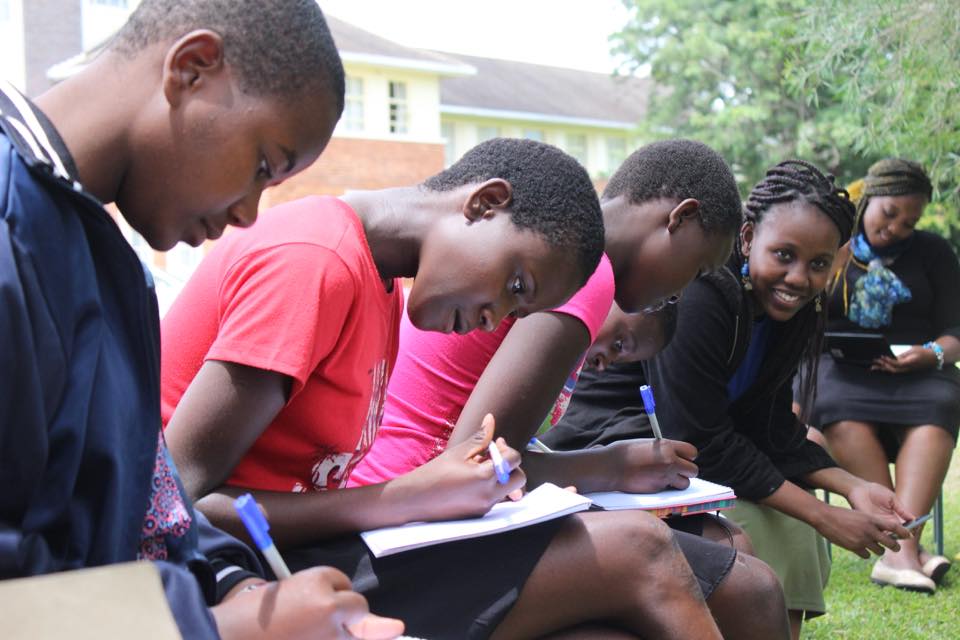
Would you say Nduna Girls has made a good impact in your country?
A total number of 600 persons have benefitted from Nduna Girls through its various activities which include educational grants, internship and graduate programs, shadow program, reading program and career guidance. Nduna Girls focuses on moulding future leaders. The program has achieved an 80% pass rate for national exams and three graduates have gone on to be employed elsewhere with one being headhunted from Nduna Girls. 50% of the beneficiaries that were on the volunteering programme have managed to find employment. The volunteer programme was designed to help young people develop their professional skills and to have experience on their curriculum vitae to enable them access better job opportunities.
Are you facing any challenge and in what areas does Nduna Zimbabwe Trust needs intervention?
Teaching resilience, self-awareness is at the heart of what we do. This issue is exacerbated by the fact that most of these young people do not have role models to emulate. It makes it difficult for them to envision better future for themselves. Some of the beneficiaries we work with have never left their rural community. This limited view that they have placed a limit to what they think they can achieve. We are also facing challenges in terms of funds to be able to perform optimally. Raising adequate awareness on the challenges that young people are facing in Zimbabwe entails a lot.
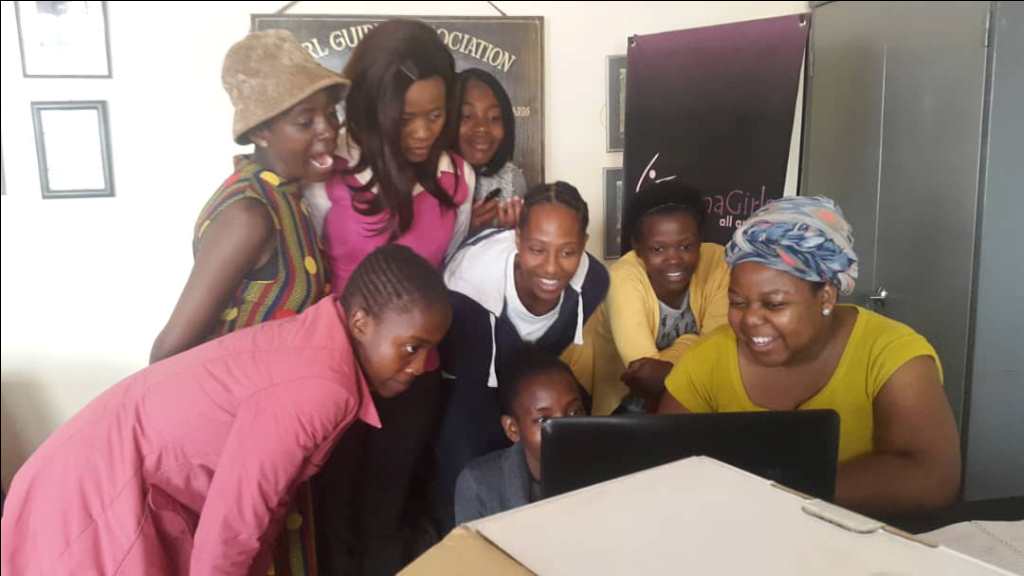
What project are you currently working on and what are you planning in the years ahead?
At the moment, we are working on pushing out our menstrual management tool kit that provides women and girls all the necessary information about menstruation with the aim of equipping them with the knowledge that will enable them to take control of how they manage their menstruation in a dignified manner. Our focus as Nduna Girls is to provide sustainable solutions in managing menstruation. The tool kit is a one-stop-shop for all things about menstruation. The tool kit teaches the users how to make their reusable pads. We also educate women on other sustainable management materials such as the menstrual cup. We hope that we will be able to implement this programme in all 10 districts in the nearest future. Currently, the programme has been carried out in Harare.
Increasing digital skills and access to the internet in Zimbabwe is something that we are currently working on at Nduna Girls. If leveraged in the right way, we believe technology can be one of the major keys to unlock opportunities for young people who are being left behind either due to poverty, gender dynamics, disability, displacement or geography factor and provide economic opportunity for underserved communities. Nduna Girls partnered with a faith-based organisation, Renewal Fellowship, to form a resource center called OWN I.T which in essence is an abbreviation for ‘Owning Information Technology’ which stems out from our vision for OWN I.T to be a space which belongs to the community where they can come and familiarise themselves with how to use technology and its benefits, and more so how to take advantage of the opportunities that come from ICTS and the internet. OWN I.T is the first and the pilot for the many resource centres we would like to initiate in both urban and rural communities around Zimbabwe, Through OWN.I.T we would like to provide a safe space that enables young people and those from disadvantaged backgrounds access to digital devices, internet and digital skills training. OWN I.T will also incorporate capacity building initiatives and exposure to STEAM (science, technology, engineering, art and mathematics) careers with those from disadvantaged backgrounds as priority.
Are Zimbabweans appreciative of what you are doing?
Yes, people appreciate what we are doing. Many of the guardians of the students that we send to school are grateful that the children in their care get the opportunity to be educated or receive additional knowledge. One of the unique things about our beneficiaries is their level of exposure.





